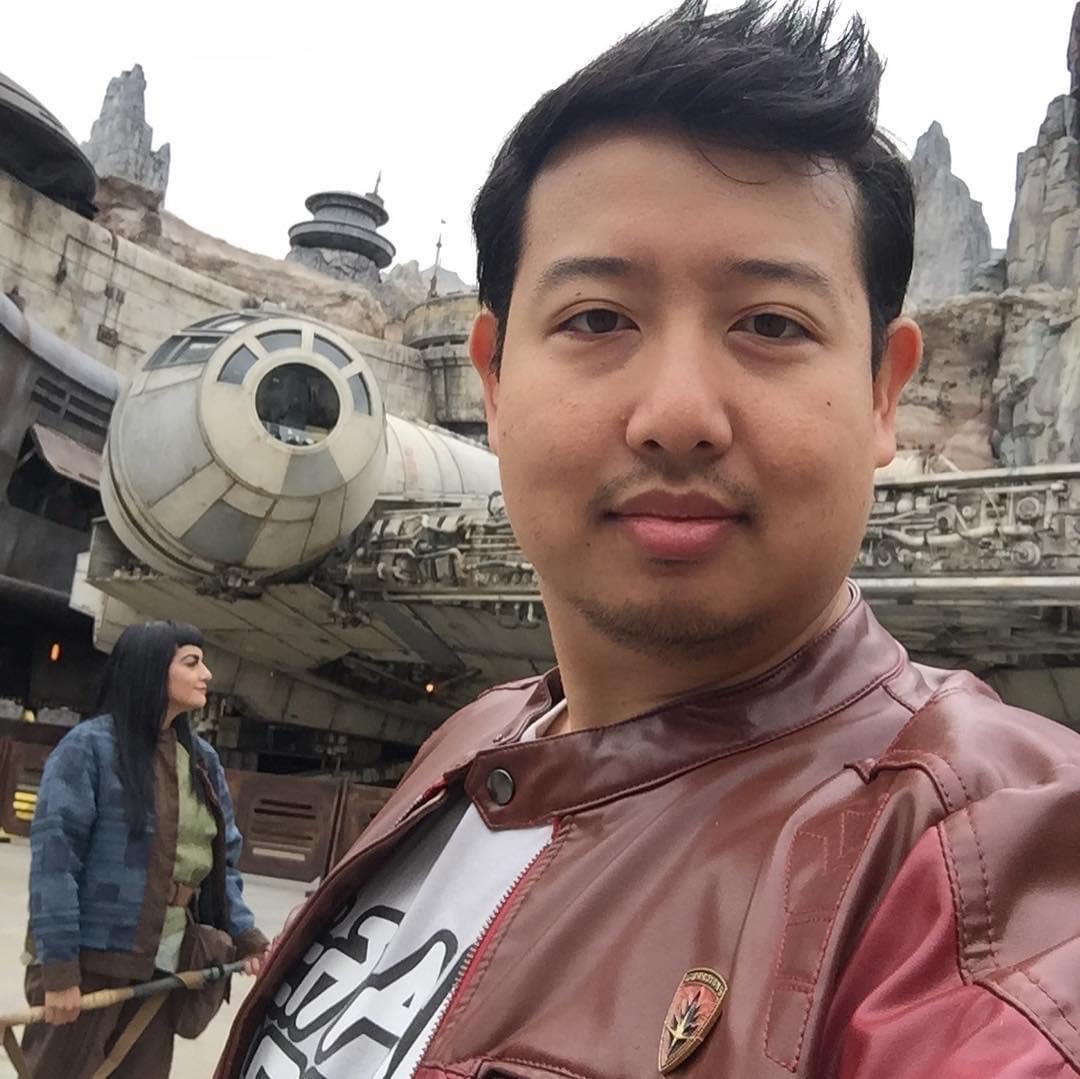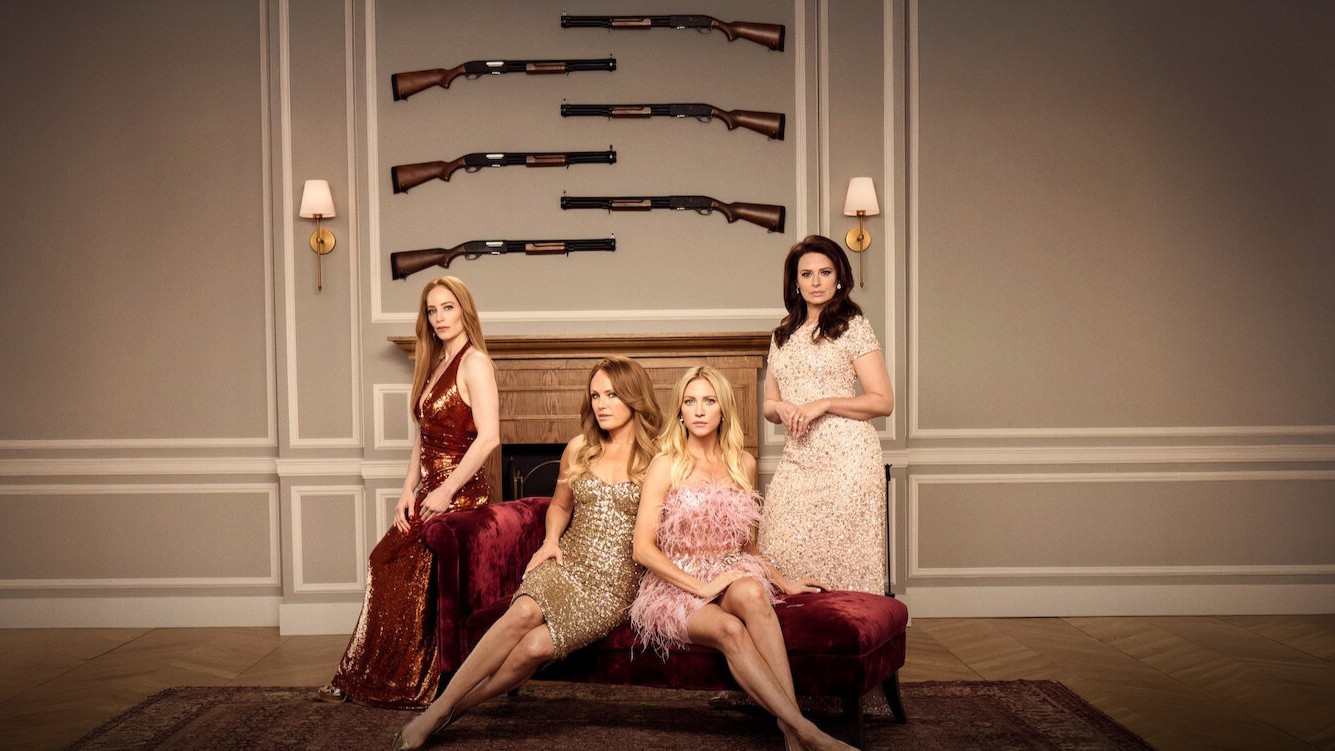'Eternals': The Perfect Companion Piece to 'Watchmen'
In many ways, 'Eternals' is a perfect companion piece to the seminal DC classic, 'Watchmen.' Here's why!
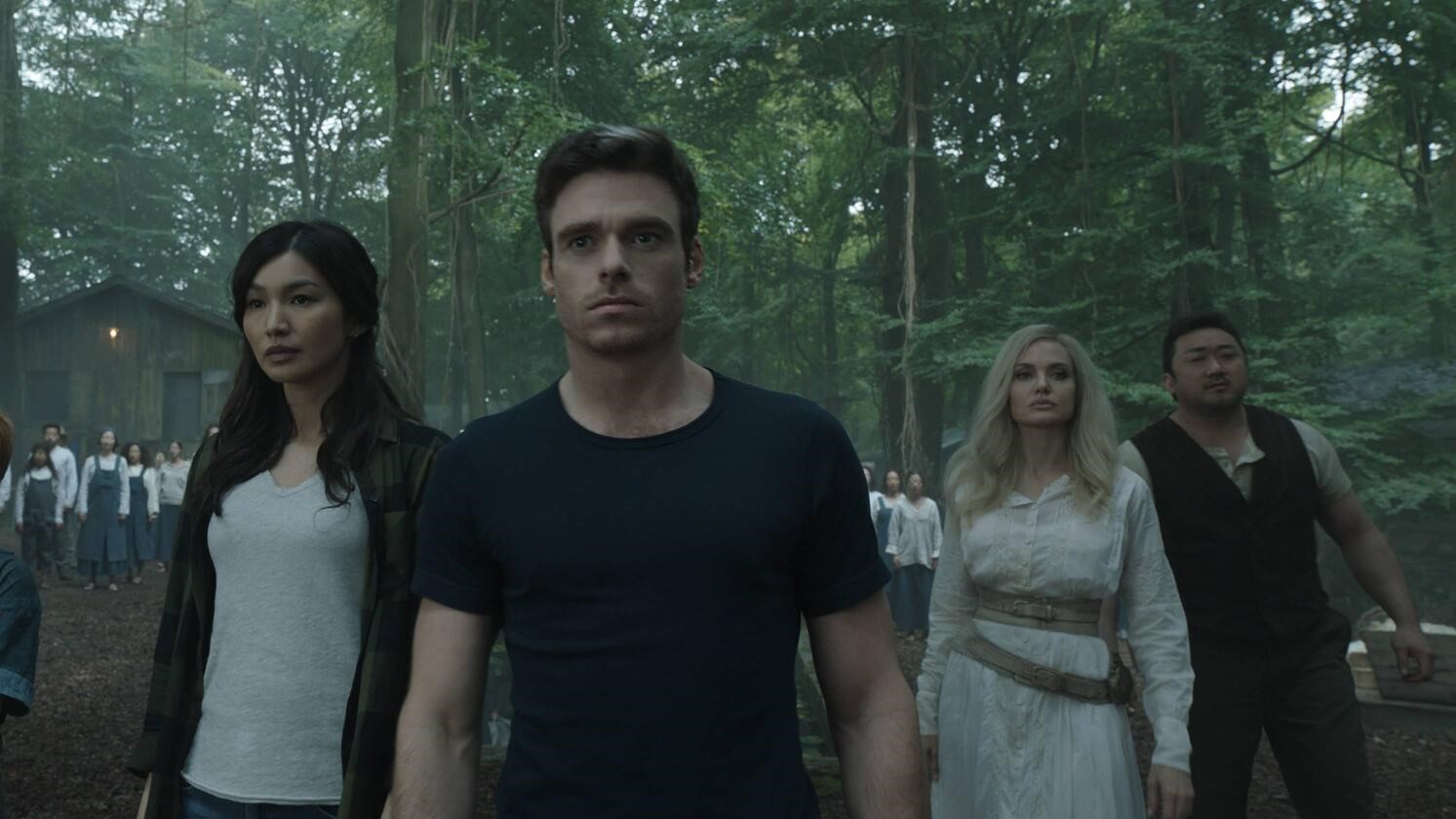
To get this out of the way right now, this is neither an endorsement for Eternals, nor a condemnation of it (though I personally really liked it). This is an analysis of the fact that, in many ways, Eternals is a perfect companion piece to the seminal DC graphic novel Watchmen and the mostly loyal 2009 film adaptation from Zack Snyder (well apart from its excellent sequel HBO miniseries, of course). That may not be a thought that would seem obvious at first, but when you really drill down the similarities and differences between the two, one could say they complement one another.
WARNING: POTENTIAL SPOILERS AHEAD IF YOU HAVEN’T SEEN ETERNALS
Plotlines
Without revealing too much, Eternals, to a degree, begins with a murder. The circumstances behind that murder are incredibly vague and unclear at first. But what is clear is that the Eternals themselves are in danger from the likes of the reemerged Deviants and are in fact being hunted one by one. To protect one another and get answers about the murder, they try to get the band back together and find that, as events progress, the entire endeavor may or may not be connected to a greater plot revolving around a potential Armageddon.
Watchmen is a similar story of a group of heroes that were divided (though in this case due to the Keene Act rather than their own personal reasons) and forced to reunite after their lives are suddenly threatened. The central murder of The Comedian is the powder keg that ignites the events of the story. And from there, Rorschach goes on a quest to try to warn each member of the team that they’re in danger of being picked off the same way. Though things start off rocky, eventually the trail of breadcrumbs they end up following exposes the greater truth about a plot to bring about a potential Armageddon.
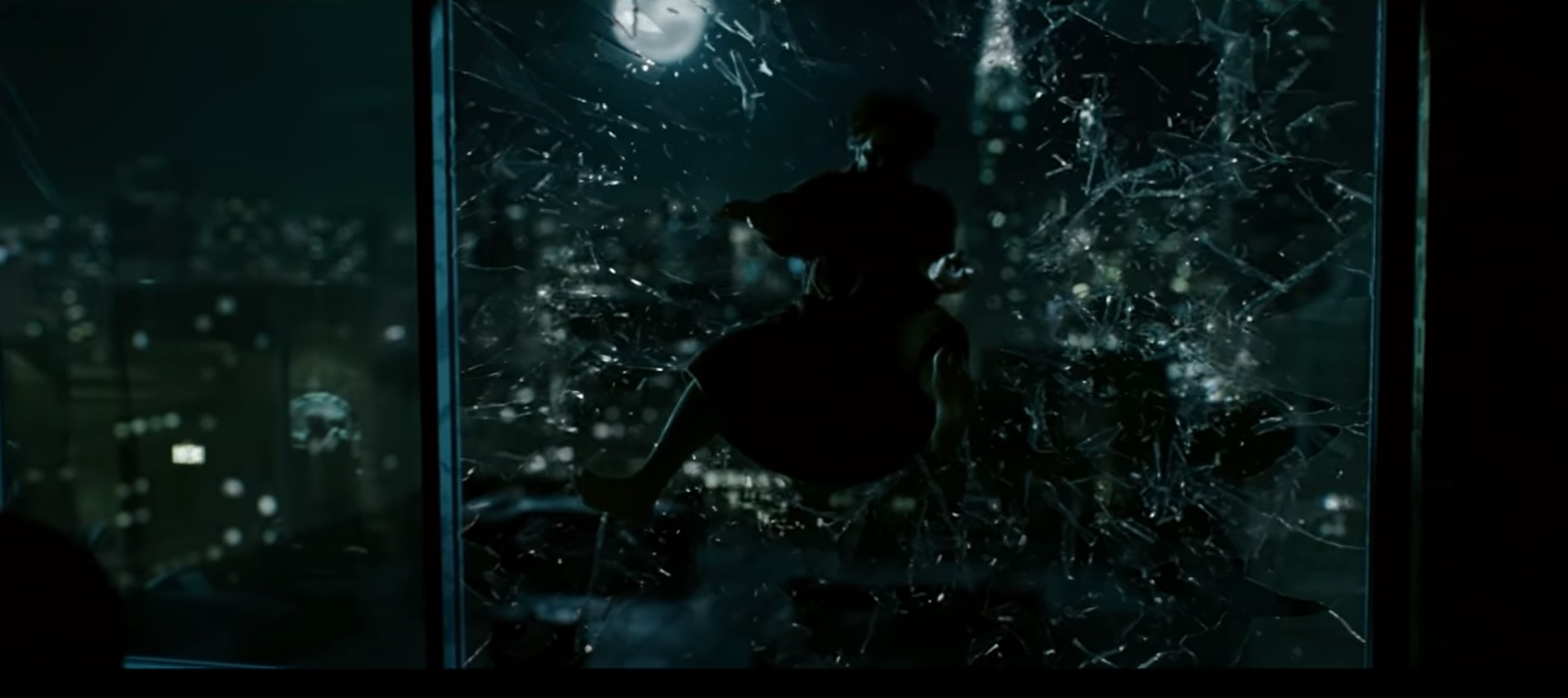
In both stories, there are betrayals within the actual teams themselves rooted in philosophical differences about humanity. And in both, the case for bringing about the apocalypse is justified by rationale that doing so benefits the greater good. Additionally, the overall narratives of both immerse themselves in a revisionist history seen through the perspective of the characters and their respective impacts on the world around them, along with the world’s impacts on them on a personal level.
Execution
Which brings us to the execution of both stories. Because history is being seen (and extensive world building accomplished) through the eyes of the ensemble in both, Watchmen and Eternals have incredibly similar non-linear approaches to telling their respective stories. They flip back and forth between historical and present day events to reveal insights about each of the characters and their relationships to one another and humanity.

Both Eternals and Watchmen are framed by the present day narratives surrounding the mysteries putting the characters at risk. However, as each of the characters in Eternals are introduced, director Chloé Zhao takes a break from the present day mystery to flash back in history to several key events involving the Eternals.
The latest updates, reviews and unmissable series to watch and more!
Through these flashbacks, she reveals more information about each of the individual Eternal members. The film develops each character and their relationships to humanity, as well as to each other, before catching you up with where they are in the present. Zhao’s approach needs the audience to understand these characters’ pasts in order to sympathize and empathize with their current states and relationship to humanity, and each other, in the present.
Also: Who are Marvels' 'Eternals' cast and where have you seen them before?
Watchmen does this similarly, with specific flashback sequences going back and forth between the Minutemen and the Crime Busters. Each flashback is meant to introduce specific characters’ relationships to one another — particularly their relationships with The Comedian. Much like Eternals, the flashbacks serve as a way to develop the characters and show the resulting impact their relationships with one another (and The Comedian) and their crime fighting careers had on them in the present day narrative.
Themes
Here’s where things get a bit interesting. The “get the band back together” murder mystery plotlines and the non-linear execution in both stories are similar and in service to the overall themes of each.
Both Eternals and Watchmen deal with the following fascinatingly similar themes: the subordinate themes of “free will” and “morality versus utilitarianism,” and how they service the primary theme of humanism from the perspective of gods. But how they approach them is where things start to diverge, allowing you to view different perspectives of the same themes.
The theme of free will is much more obvious in Eternals than it is Watchmen, particularly through the conflict between Druig (given his mind altering powers) and the rest of his teammates. Druig wants to use his powers to protect humanity from themselves, while the rest of the Eternals object to this. We actively see the Eternals wanting to preserve humanity’s free will, and believing they deserve that freedom. In the film, Druig opts to use his powers to hold a large group of people (generations of them) hostage to form a commune without conflict or war. However, with the looming threat of an apocalyptic event underway, he finally is convinced by Sersi and the rest of the team that what he’s doing is wrong and lets them go so they can make their own choices for what could be Earth’s final moments. All of this is because after 7,000 years with them, he and the rest of the Eternals actually care about humanity.
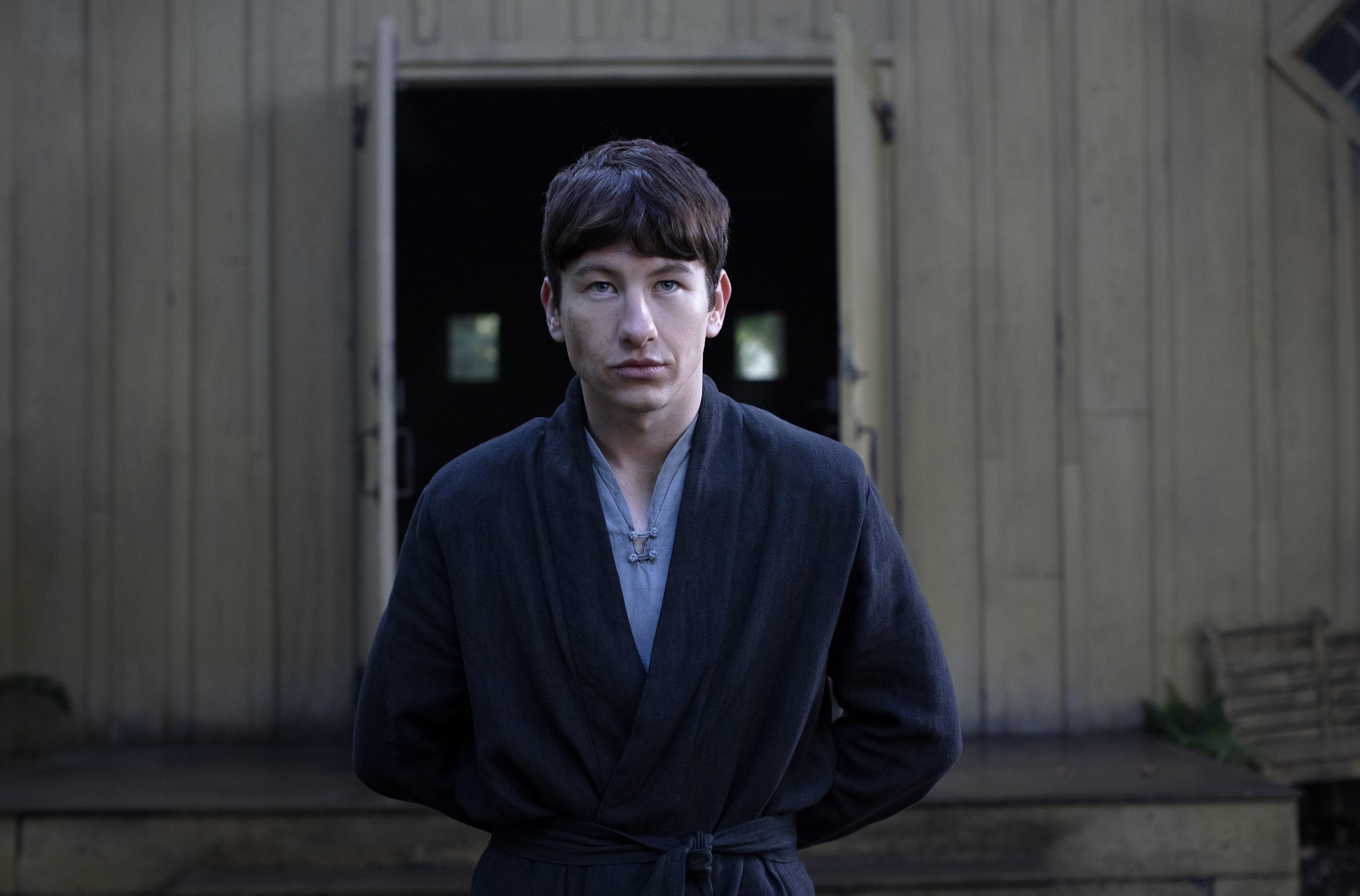
In contrast, the nature of free will is constantly questioned by the Crime Busters in Watchmen; particularly through Doctor Manhattan and his fatalistic ways (believing free will doesn’t exist given everything is predetermined) and everyone except Rorschach in the story’s climax. For example, Doctor Manhattan does nothing to save a pregnant woman because his belief that all things are predetermined has made him callous to mankind’s needs. Then there’s Veidt, who, in his own self-importance, believes humanity can never achieve world peace without his own intervention. And finally, in the comics, Silk Spectre and Nite Owl II decide to be complicit with Ozymandias’ plan, thinking humanity wouldn’t be able to handle the truth. Their collective disbelief in humanity’s ability to pave their own destiny has made them either completely apathetic or disgusted with it to the point where they can justify its destruction.
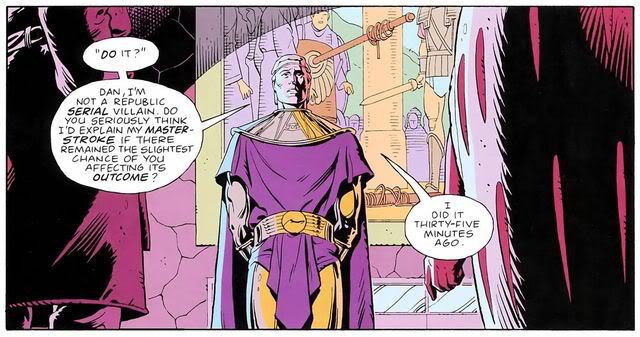
Which brings us to the idea of morality versus utilitarianism. Both stories present the question about whether or not the ends truly justify the means. Is killing billions to ensure trillions live a worthy sacrifice?
As stated, Watchmen poses this question through Ozymandias’s master plan to destroy New York to unite the world against a common enemy, and the former Crime Busters enabling it. Eternals poses this question through the plans the Celestials want the Eternals to execute on their behalf and the conflict that arises within the Eternals team because of it.
That said, ultimately it’s clear to see that the Eternals (like Rorschach and also Captain America) don’t believe in trading lives. And all this is because of the Eternals’ love for humanity. Zhao allows us to believe her characters love humans and would take the moral high ground over utilitarianism because she actively dives deeper into how humanity has affected each Eternal.
Take Brian Tyree Henry’s Phastos for instance. As a character, he loses faith in humanity after the events of World War II and Hiroshima, but has it restored after he finds love and creates a family. This motivates him to join the fight to stop the apocalypse from happening.
Final Thoughts
All of this has been to say that ultimately, Watchmen and Eternals are two sides of the same coin. They present similar situations and execute them almost identically. However, Watchmen uses its narrative and themes to present the cynical, nihilistic perspective on the concept of heroism. While Eternals takes its similar premise, structure, and themes to make you believe in the romantic possibility of love, heroism and the promise of human existentialism through its characters. Perhaps many may criticize this as the “Marvel Studios” effect, where the good guys have to be good guys. But I choose to see it more as the power of optimism in Chloe Zhao to hope for the best in people and heroes.
I guess this did end up being something of an endorsement for Eternals after all!
Mike is a proud, sarcastic nerd with a penchant for comic books, comic book movies, and movies in general, and occasional delusions of grandeur. He's also a UC Berkeley graduate who decided to go into writing over pre-med because he figured he'd ultimately save more lives by not being a doctor. He's a Slytherin and a Pisces, so he's very emotionally sensitive, yet also evil, but can be defeated by exploiting his insecurities. His goal is to live one hell of a unique life, and it's been working so far! His proudest moments are being retweeted by James Gunn and Ryan Reynolds in the same week, and getting 999,999 points on Buzz Lightyear Astro Blasters at Disneyland.
You can find Mike's writing around the web at publications like The Nerds of Color, What to Watch, Spoiler Free Reviews, and That's It LA.
